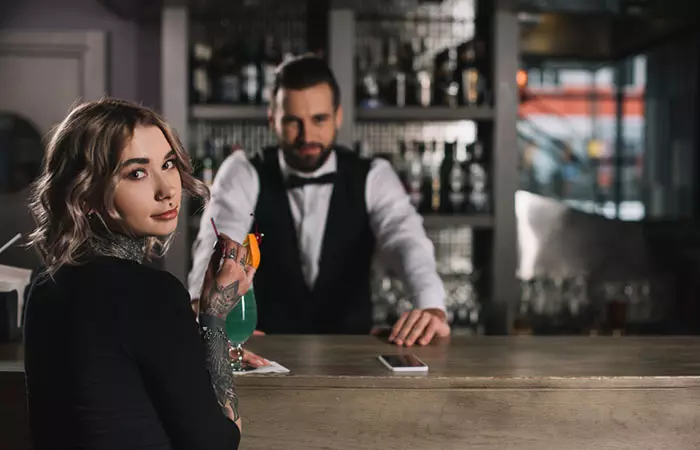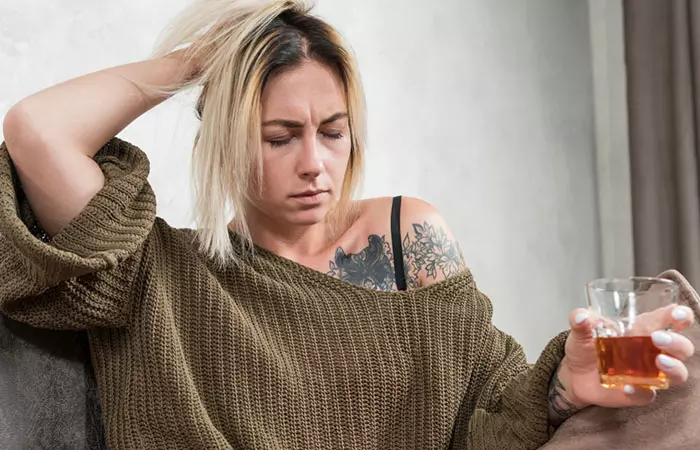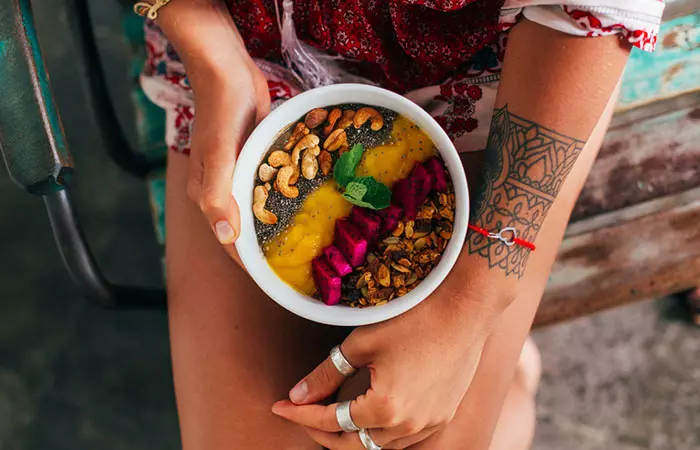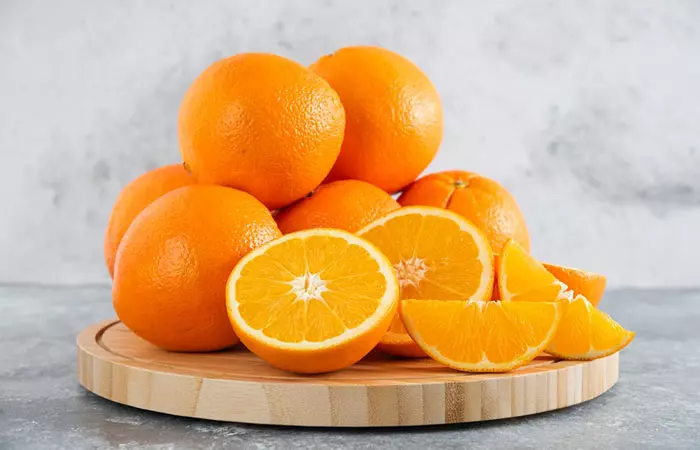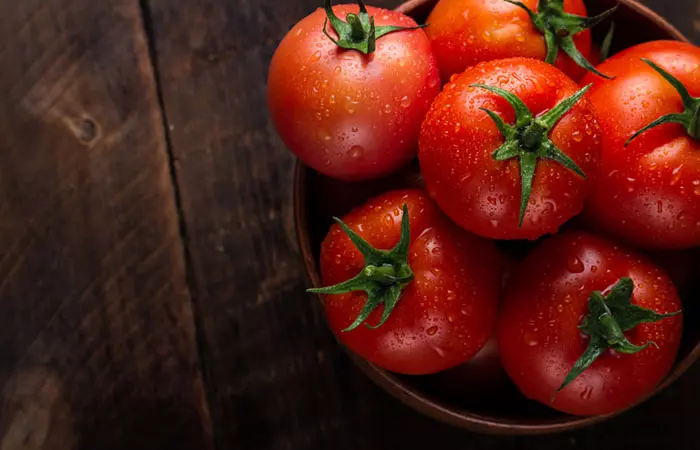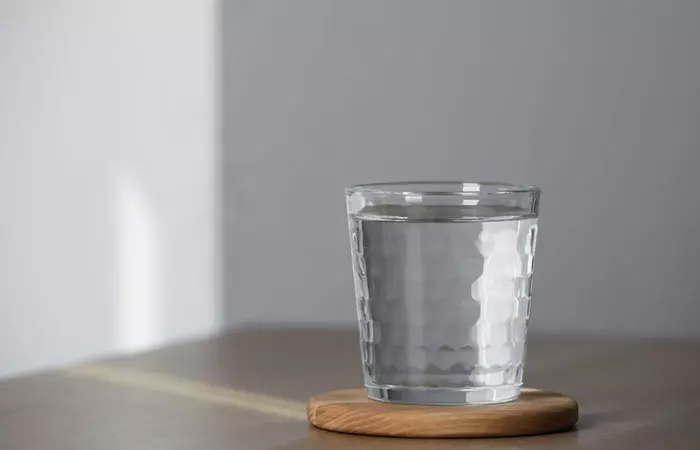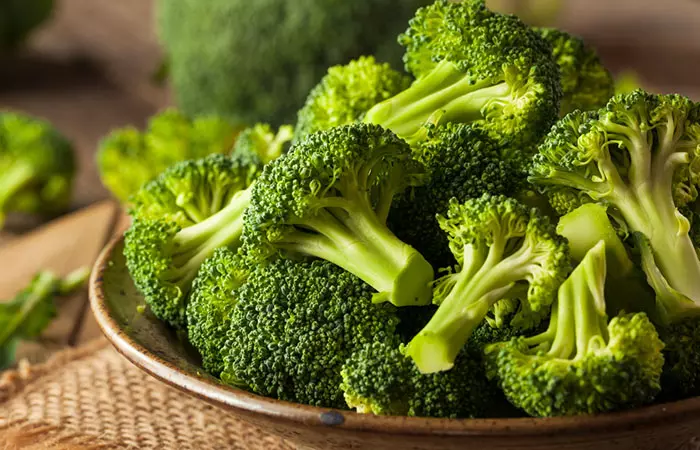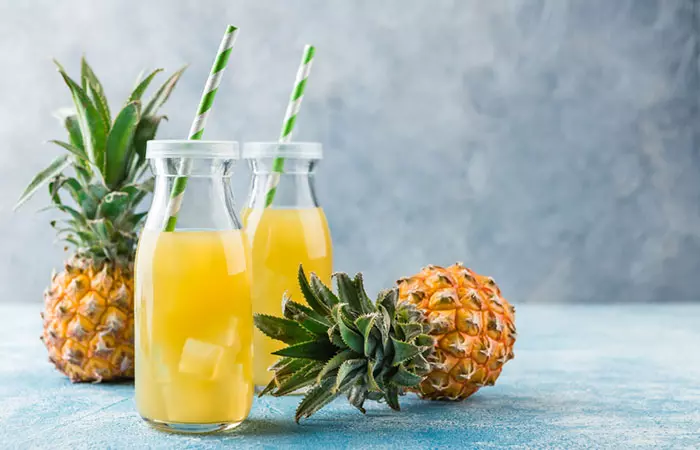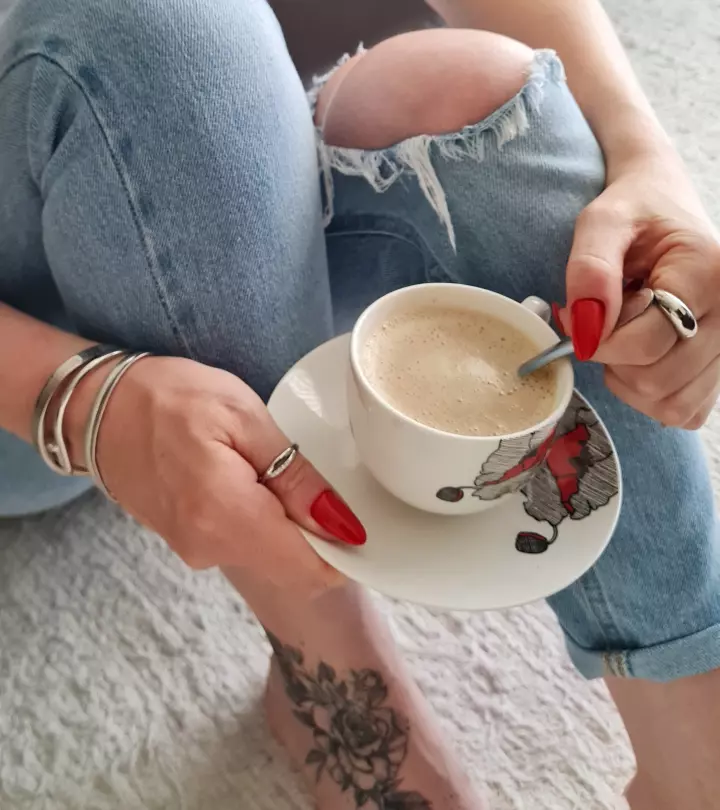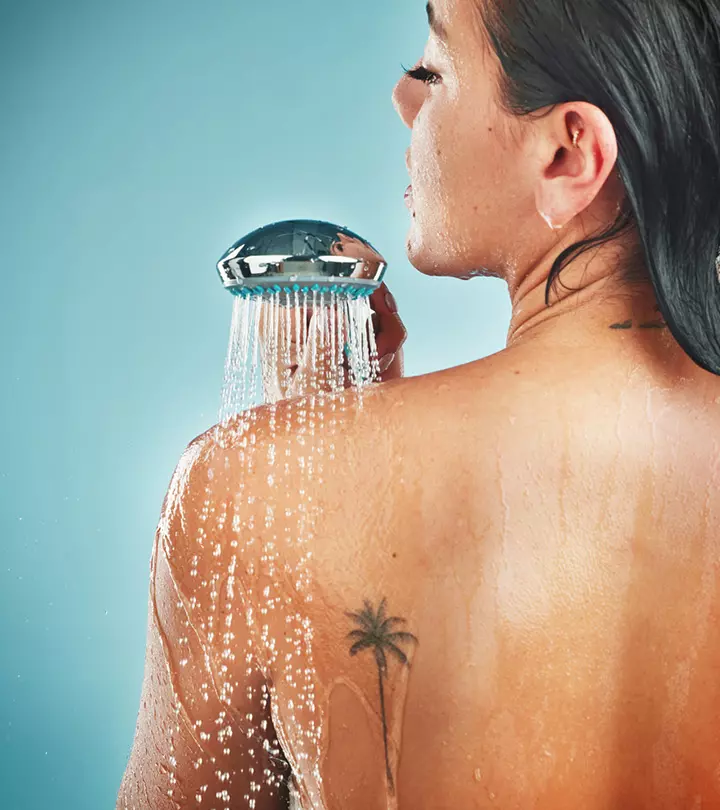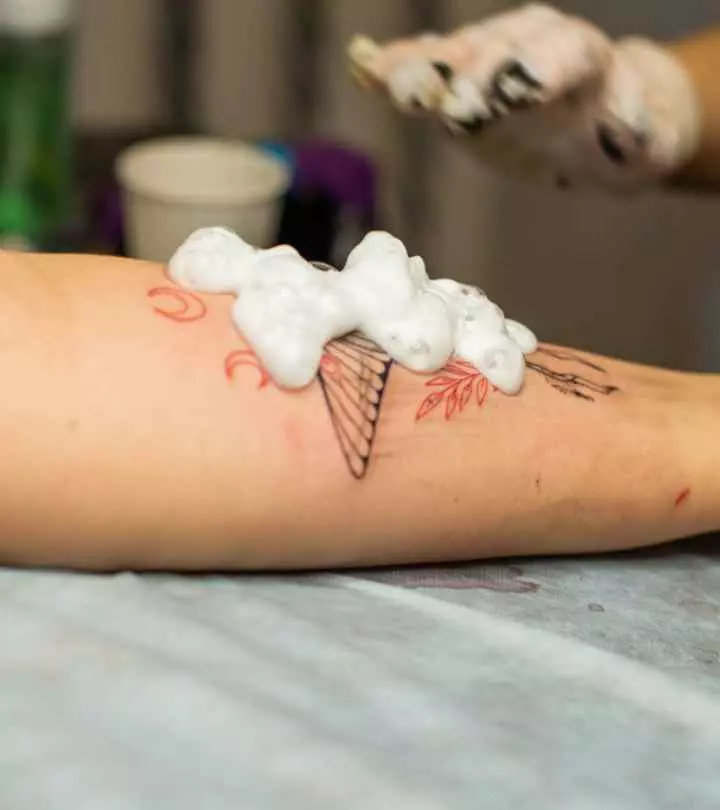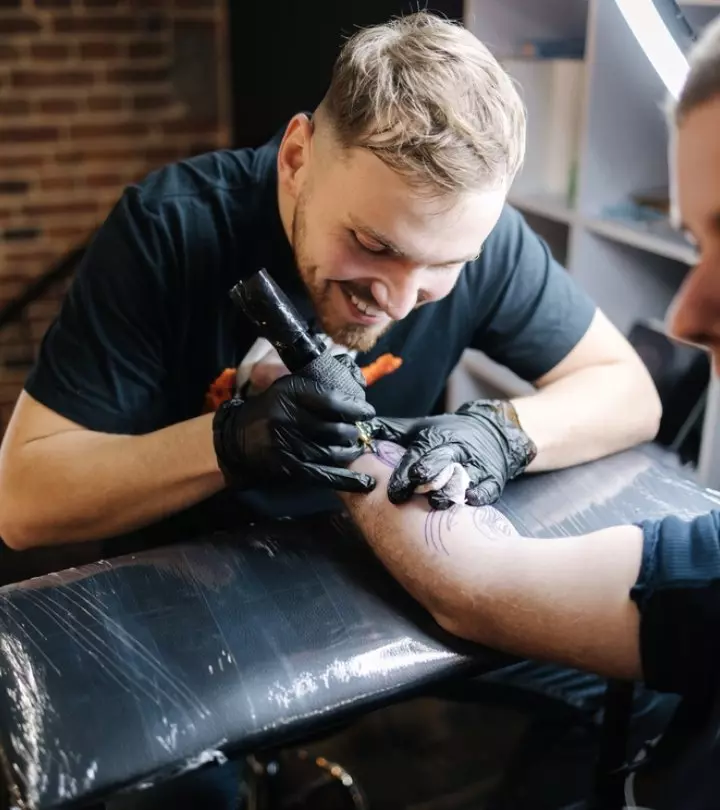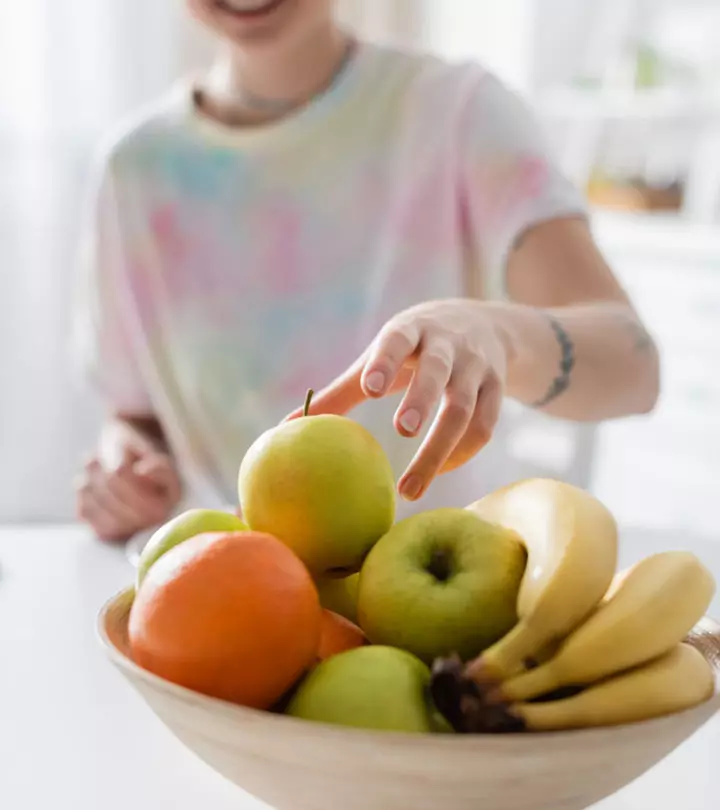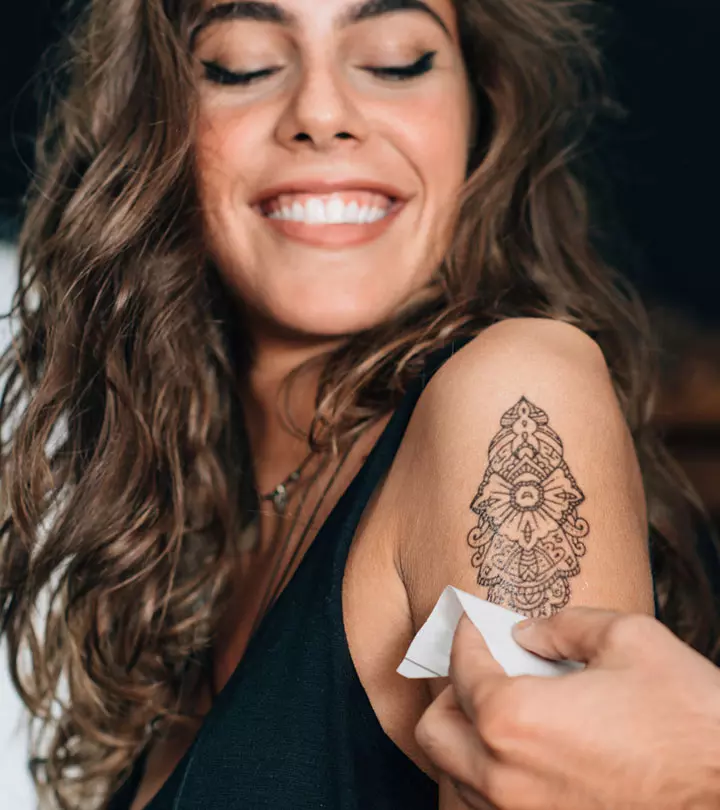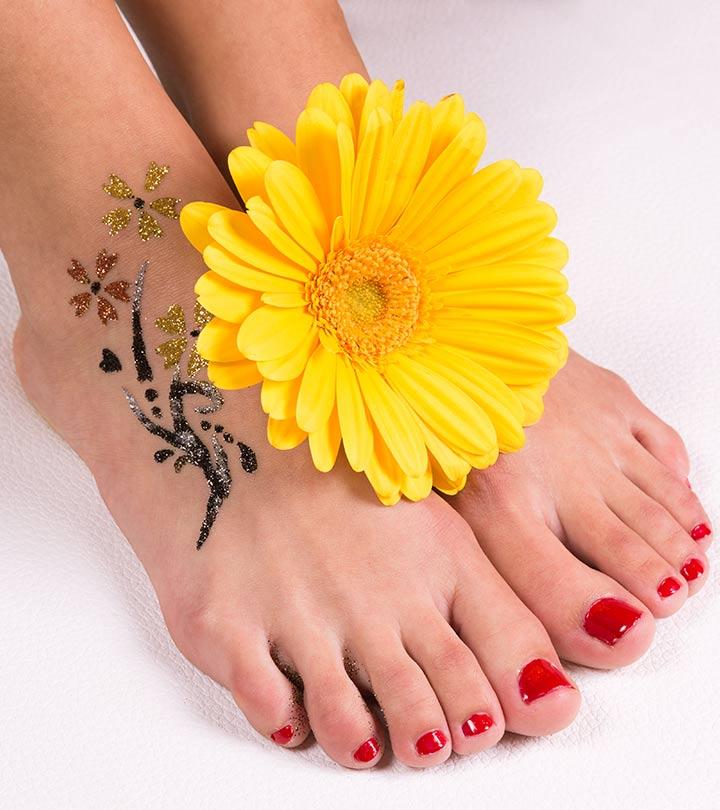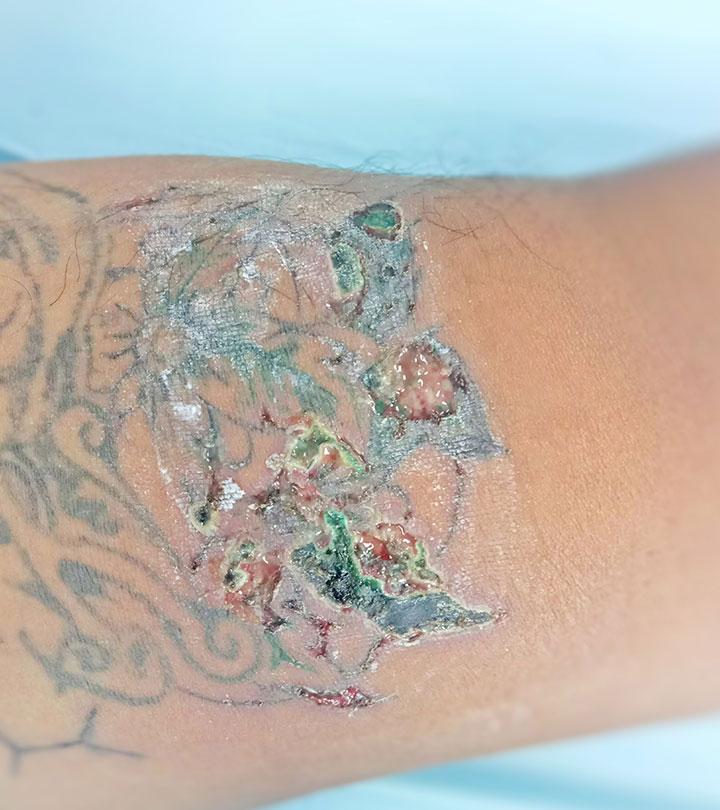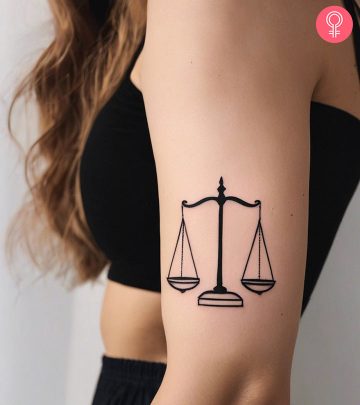Can You Drink After Getting A Tattoo?
Here’s what you need to know about mixing alcohol and tattoos before you toast your new ink.
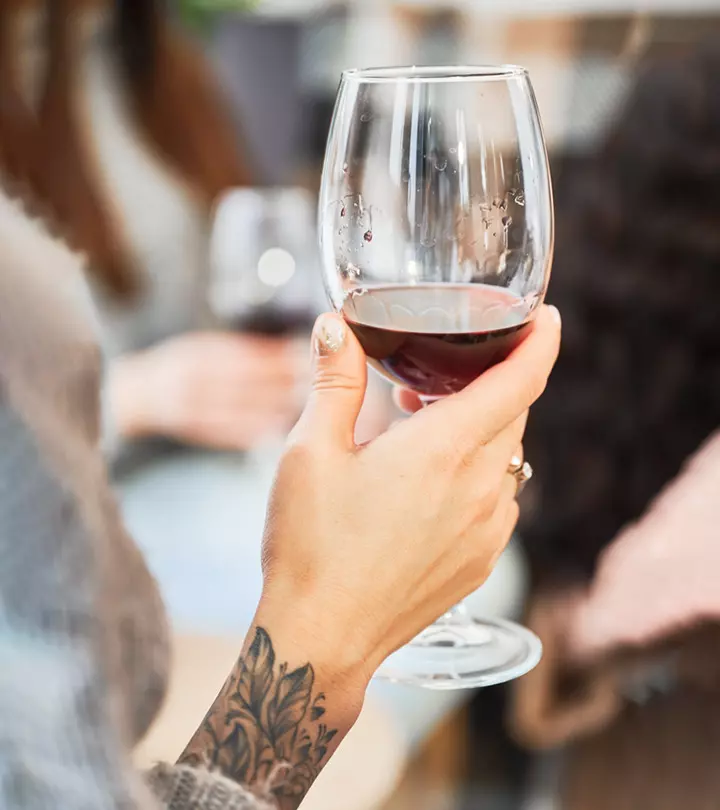
Image: Shutterstock
Embarking on the journey of getting a tattoo is undoubtedly an exhilarating experience, marked by the careful consideration of design, placement, and, of course, aftercare. However, as the ink settles into the skin, a common query arises: “Can you drink after getting a tattoo?” Navigating the realm of post-tattoo indulgences requires a delicate balance between celebrating your new body art and ensuring optimal healing. While the excitement of a freshly inked masterpiece might tempt you to raise a glass of wine in its honor, there are essential considerations and precautions to ponder first. In this exploration of the intriguing intersection between body art and libations, we delve into what you need to know about the delicate post-tattoo period and whether the clink of glasses can harmonize with the buzz of the tattoo machines. Scroll down to find out!
In This Article
Can You Drink After Getting A Tattoo?
Ideally, you should wait for 48 hours after getting a tattoo before you drink any alcohol. It’s also crucial not to drink 24 hours before getting a tattoo. A fresh tattoo is like an open wound, and alcohol can slow down the healing process. Drinking hard alcohol or even a cold beer after a tattoo session may cause more bleeding, as alcohol makes the blood thinner. According to a study, drinking alcohol reduces the amount of blood platelets because it affects the bone marrow, making it less effective in producing these cells. Additionally, it alters the structure of the platelets, making them less sticky and less capable of clumping together to form a clot (1). This excess bleeding can affect the scabbing process post the tattooing session, thereby impairing its healing. In terms of drinking before the session, the excess bleeding can make it hard for the tattoo artist to do their job properly. Moreover, alcohol also affects behavior and can lead to difficulties in communication during the tattooing session, making it challenging for the artist to reproduce your vision and create the perfect tattoo.
While it’s evident that mixing alcohol with the tattoo procedure is an unhealthy relationship, it naturally prompts the question: What happens, and what could be the risks of drinking alcohol after getting a tattoo? Let’s explore the details.
 Quick tip
Quick tipThe Risks Of Drinking Alcohol After Getting A Tattoo
1. Bleeding Issues
The body takes a while to process alcohol, and its effects on the blood aren’t immediately clear. Even if you feel fine or slightly hungover during your tattoo process, your blood might still be diluted for 36-48 hours after drinking. This effect of blood thinning from the alcohol can lead to further bleeding during and after the tattoo process. Thus, excessive drinking increases the risk of bleeding, affecting the proper setting of the tattoo ink into the skin. This can potentially make the tattoo look faded or uneven, contributing to a cloudier appearance.
2. Impaired Judgment And Decision-Making
Drinking before a tattoo impairs your judgment and decision-making abilities. As is, alcohol alters your state of mind– for instance, driving is a big no after drinking. Hence, it follows, deciding on a permanent tattoo in an inebriated state is bound to be an impaired judgment on your part. You might choose a tattoo that seemed cool when you were drunk, but the next day, you might regret that fresh ink because it’s not the design you really wanted. In fact, as any reputable artist will tell you, they are known to decline drunk customers for liability concerns.
3. Loss Of Control
When you drink alcohol, it slows down your nervous system, making it harder for your brain to send messages to different parts of your body. This makes your muscles relax a lot, and you lose control over them (2). So, not only does alcohol affect your decision-making, but it also increases the chance of you not properly realizing the amount of pain you are in while getting a tattoo that may not look so great. Furthermore, a loss of control can also cause negligence in your tattoo aftercare.
4. Delayed Healing
A tattoo machine pierces the skin multiple times to create an open wound, and so the healing time is significant, ranging from a couple of weeks to months for larger tattoos. Drinking after a tattoo hinders the skin’s clotting and scabbing process (due to it acting like a blood thinner), which is crucial for natural healing. Alcohol also weakens the immune system, making you more susceptible to infections that your body would normally fight off (3). This can slow down the natural healing of your tattoo, possibly extending the recovery time and impacting the final result quality. To ensure optimal healing and preservation of your tattoo’s integrity, it’s crucial to avoid alcohol during the days of healing, minimizing the risk of infection.
5. Mutual Understanding And Respect Between Artist And Client
A tattoo studio is a sacred workplace for the tattoo artist. Consuming alcohol after getting a tattoo may impact the respectful relationship between you and your certified tattoo artist. It’s essential to honor the artist’s effort by following their aftercare instructions diligently. Excessive alcohol consumption might lead to negligence of these guidelines, potentially compromising the final outcome of the tattoo and straining the mutual trust between the artist and client. Understanding the potential effects of alcohol on the healing process is crucial to maintain the integrity of the artwork as well as the artist’s reputation.
When planning your upcoming tattoo appointment, there are various factors to take into account, including what you should consume both before and after getting a tattoo. Your choice of food and drinks can significantly impact your entire tattoo experience, so it’s advisable to consult this list before your next tattoo appointment.
The Best Drinks And Food To Consume Before And After You Get A Tattoo
1. Oranges
Oranges contain organic acids, vitamins, minerals, vitamin C, and flavonoids (4). Vitamin C is crucial for skin health; when deficient, it harms skin functions, causing issues like slow wound healing, thickened outer skin, and bleeding due to weakened connective tissue (5). It is also important for collagen production. Collagen keeps your skin hydrated and improves its elasticity, making it the optimal surface for tattoos, while vitamin C boosts your immune system and helps your body heal naturally.
2. Tomatoes
Tomatoes also have Vitamin C, which helps in collagen production and keeps the skin supple. They also contain lycopene, which might protect against UV light (6). Consuming tomatoes may protect your skin from sunburns, helping your tattoo stay fresh and reducing the need for touch-ups.
3. Water
Adequate water intake sustains skin density and thickness and maintains overall skin health by preventing moisture loss (7). Hydration is particularly crucial before a tattoo, as it promotes skin elasticity for a more comfortable experience and optimal tattoo ink absorption. Post the tattoo session, ongoing drinking of water supports the healing process, promoting skin recovery and safeguarding the vibrancy and well-being of your new ink.
4. Broccoli
Research conducted on mice suggests that extracts from broccoli sprouts shield the skin from damage and UV radiation, reducing the risk of skin cancer (8). Some believe broccoli to be even more effective than sunscreen in preventing skin cancer. You can even apply broccoli extract on your skin before a bath; the sulforaphane in it can work wonders for your skin (9).
5. Pineapple Juice
While limited research is available in this regard, it is believed that the vitamin C in pineapples can be beneficial for the skin. Vitamin C plays a key role in making collagen, which helps heal wounds and shields the skin. (10). Plus, pineapple has a soothing effect on the skin, which can help prevent inflammation after getting a tattoo.
While these foods are generally good for your overall health and can indirectly support the healing of tattoos, it’s important to note that there is no specific magical food for tattoo healing. It’s crucial to follow proper aftercare instructions provided by your tattoo artist and to maintain a balanced and healthy diet for overall well-being. If you have specific concerns about your tattoo healing process, it’s recommended to consult with your tattoo artist or a healthcare professional.
 Quick tip
Quick tipConclusion
Can you drink after getting a tattoo is a common query when celebrating fresh ink. It’s crucial to refrain from alcohol for 24 hours before and 48 hours after the procedure to avoid potential issues and ensure optimal healing. Neglecting this precaution can result in adverse, possibly permanent effects. Opt for nourishing foods and plenty of water to aid healing and enhance well-being. Additionally, consider the policies of the tattoo parlor regarding alcohol consumption to ensure a smooth and comfortable experience. This patience and care can contribute significantly to the recovery process as well as the appearance of the tattoo. Investing time in post-tattoo sobriety safeguards the durability of your chosen design as well. While the urge to indulge in drinks may be tempting, remember, a lifetime of enjoying both your tattoo and occasional libations awaits. In conclusion, balancing tattoo celebrations with responsible aftercare ensures lasting body art and cherished memories.
Frequently Asked Questions
Can you get a tattoo while drunk?
Getting a tattoo while drunk is not advisable as alcohol can thin the blood, increasing bleeding during the process. It can also impair judgment, leading to decisions that might be regretted later. Professional tattoo artists may refuse to tattoo individuals who are intoxicated for safety and legal reasons.
What to do instead of drinking to calm your nerves?
Instead of reaching for a drink for nervousness, consider practicing mindfulness techniques like deep breathing, listening to music, or talking to a friend to calm your nerves and manage stress effectively. Seeking professional advice or counseling is also an option for long-term support.
What to do if you have drunk alcohol before getting a tattoo?
If you have consumed a couple of alcoholic drinks before a tattoo, inform your tattoo artist. They may reschedule or adjust the session based on your well-being. It’s important to be transparent about any instances of drinking before a tattoo to ensure a safe and effective tattooing experience.
If you have consumed a couple of alcoholic drinks before a tattoo, inform your tattoo artist. They may reschedule or adjust the session based on your well-being. It’s important to be transparent about any instances of drinking before a tattoo to ensure a safe and effective tattooing experience.
Key Takeaways
- Avoid alcohol 24 hours before and 48 hours after getting a tattoo for optimal healing and ink preservation.
- Alcohol post-tattoo poses risks like excessive bleeding and delayed healing due to improper blood clotting, loss of control and impaired judgment regarding aftercare, a cloudier appearance of the tattoo, and a strained artist-customer rapport.
- Choosing healing foods, such as tomatoes, broccoli, oranges, and drinking water can boost recovery of the tattooed skin and overall well-being.
- For specific tattoo healing concerns, consult your tattoo artist/tattoo studio or a healthcare professional for guidance.
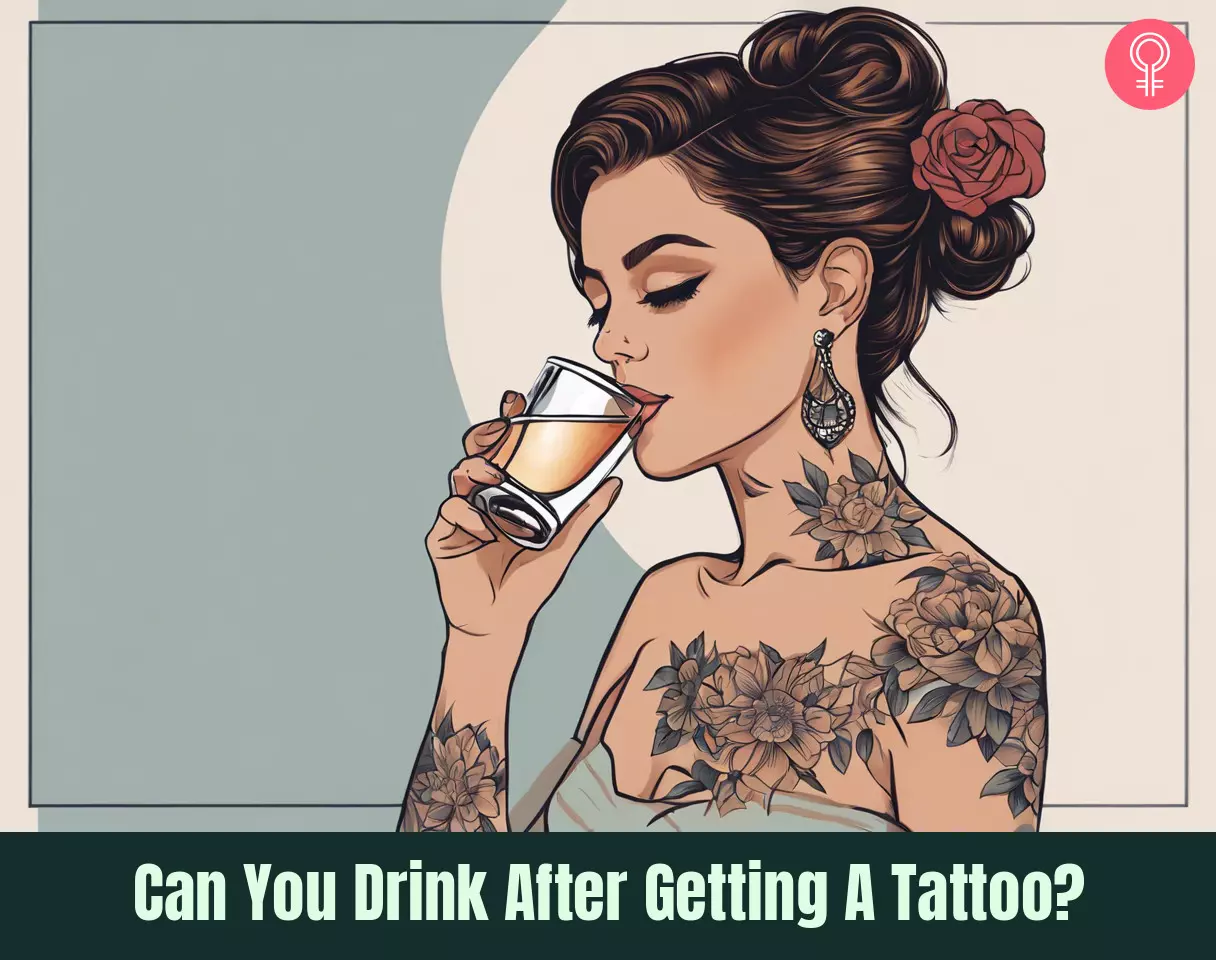
Image: Stable Diffusion/StyleCraze Design Team
Consuming alcohol before and during the tattoo procedure can cause a lot of problems. From potential health risks to compromised ink quality. This video is a must-watch before your next ink session. Click to know more!
References
Articles on StyleCraze are backed by verified information from peer-reviewed and academic research papers, reputed organizations, research institutions, and medical associations to ensure accuracy and relevance. Read our editorial policy to learn more.
- Influence of alcohol consumption on blood coagulation in rotational thromboelastometry (ROTEM): an in-vivo study
https://ekja.org/journal/view.php?doi=10.4097/kja.20071 - Effect of alcohol on the central nervous system to develop neurological disorder: pathophysiological and lifestyle modulation can be potential therapeutic options for alcohol-induced neurotoxication
https://www.ncbi.nlm.nih.gov/pmc/articles/PMC8222771/ - Alcohol and the Immune System
https://www.ncbi.nlm.nih.gov/pmc/articles/PMC4590612/ - Oranges, raw, navels
https://fdc.nal.usda.gov/fdc-app.html#/food-details/746771/nutrients - The roles of vitamin C in skin health
https://www.ncbi.nlm.nih.gov/pmc/articles/PMC5579659/ - Supplementation with tomato-based products increases lycopene phytofluene and phytoene levels in human serum and protects against UV-light-induced erythema
https://pubmed.ncbi.nlm.nih.gov/15830922/ - Water, hydration and health
https://www.ncbi.nlm.nih.gov/pmc/articles/PMC2908954/ - Dietary glucoraphanin-rich broccoli sprout extracts protect against UV radiation-induced skin carcinogenesis in SKH-1 hairless mice
https://www.ncbi.nlm.nih.gov/pmc/articles/PMC3280724/ - Free radicals, antioxidants and functional foods: Impact on human health
https://www.ncbi.nlm.nih.gov/pmc/articles/PMC3249911/ - Effects of canned pineapple consumption on nutritional status, immunomodulation, and physical health of selected school children
https://www.ncbi.nlm.nih.gov/pmc/articles/PMC4258310/
Read full bio of Madhumati Chowdhury
Read full bio of Manjari Uppal




